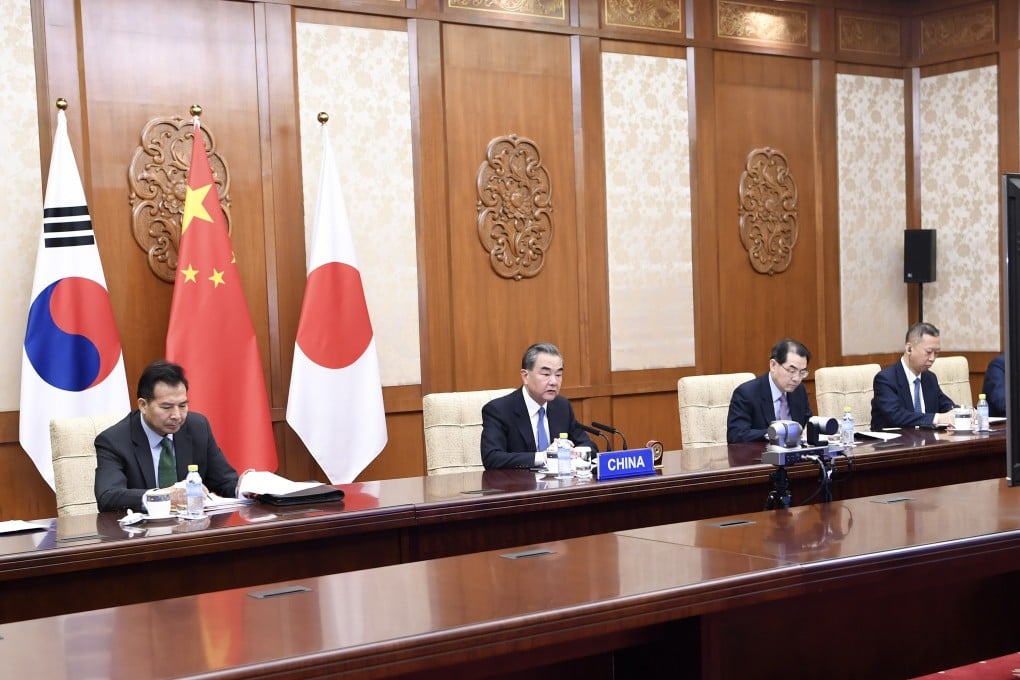Advertisement
Coronavirus: China, South Korea and Japan cooperating to reduce imported cases
- China has been eager to mediate long-running tensions between Japan and South Korea over territorial and historical issues
- China and South Korea supported Japanese Prime Minister Shinzo Abe’s promise to hold the Olympic Games in their ‘complete form’
Reading Time:3 minutes
Why you can trust SCMP

China, Japan and South Korea’s foreign ministers held a video conference on Friday to discuss cooperation on the coronavirus pandemic amid growing concern over the number of infected people arriving in their countries from overseas.
Although the epidemic erupted in China in December, and South Korea at one stage had the second-most infections, both countries succeeded in curtailing domestic transmission. On Friday, China reported no domestically transmitted cases of the virus had been registered on Thursday, but it had 39 imported infections. Mainland China has more than 80,000 infections in total.
The number of cases in Japan has been far smaller but Tokyo has the extra consideration of whether to press ahead with hosting the Olympics this summer, with some 600,000 spectators and athletes expected to descend on Tokyo.
Advertisement
Japanese Prime Minister Shinzo Abe has vowed to hold the games, slated to begin on July 24, in their “complete form” without downscaling any of the events or preventing spectators from attending.
During the teleconference, Japanese Foreign Minister Toshimitsu Motegi said the Olympics would be “a symbol of humankind’s victory over the virus”. Chinese Foreign Minister Wang Yi said he was looking forward to the event, and South Korean Foreign Minister Kang Kyung-wha said she supported Japan’s position on the matter.
Advertisement
Advertisement
Select Voice
Select Speed
1.00x